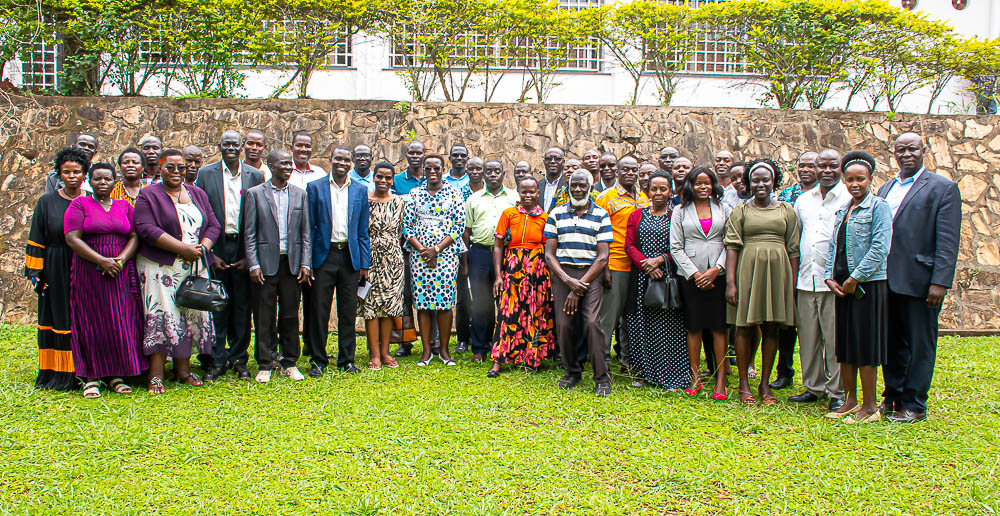The National Crop Resources Research Institute (NaCRRI) hosted a two-day inception meeting on March 27–28, 2025, to officially launch the Building Equitable Climate-Resilient African Bean and Insect Sectors (BRAINS) project. The initiative aims to advance sustainable bean and insect farming as a pathway to enhanced food security and economic development in Uganda.
The project brings together a diverse network of stakeholders, including the National Agricultural Research Organization (NARO)–NaCRRI, the Alliance of Bioversity and CIAT, Kyambogo University, local government representatives, private sector partners, and farmers from four key districts: Soroti, Kaberamaido, Isingiro, and Mayuge.
Dr. Gabriel Ddamulira, speaking on behalf of the Director of Research at NaCRRI, officially opened the meeting by underscoring the importance of climate-smart agricultural innovations. “As NARO, our mission is to boost productivity while addressing the growing challenges of climate change. We must explore market opportunities and value addition to ensure both economic growth and food security,” he emphasized.
Project Principal Investigator Dr. Pamela Paparu highlighted the regional scope of the initiative, noting its implementation across 15 sub-Saharan African countries. “Uganda is fortunate to be part of this effort. The BRAINS project will empower farmers, particularly youth and women—with the knowledge and skills needed to build sustainable, climate-resilient livelihoods,” she said.
The meeting featured interactive focus group discussions and expert presentations on practical strategies to improve resilience among smallholder farmers. Key topics included the use of climate information in agricultural planning, agricultural insurance, access to quality agro-inputs, and innovative solutions such as using black soldier flies to produce organic fertilizer.
A farmer representative from Soroti voiced optimism about the project’s potential impact: “Beans are a staple in our community. With NARO’s support in providing weather guidance and certified seeds, we believe we can increase our yields and sustain our production.”
As the meeting concluded, stakeholders agreed on concrete next steps, including ongoing farmer training, improved market linkages, and strengthened partnerships to ensure long-term project sustainability. The BRAINS project is poised to be a transformative force in Uganda’s climate-smart agriculture landscape, providing a robust framework for food security and economic empowerment.

